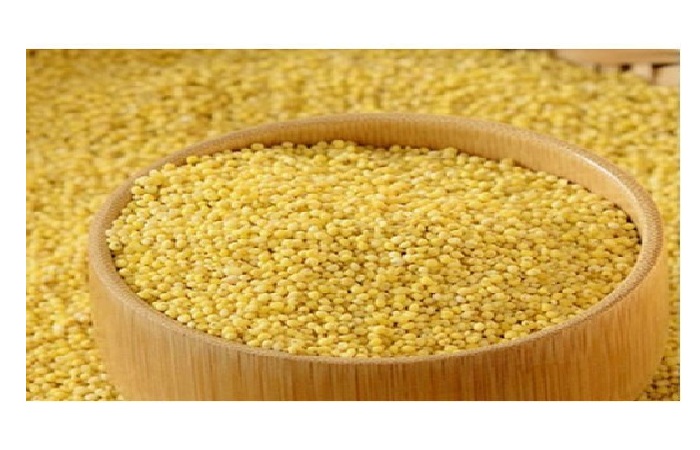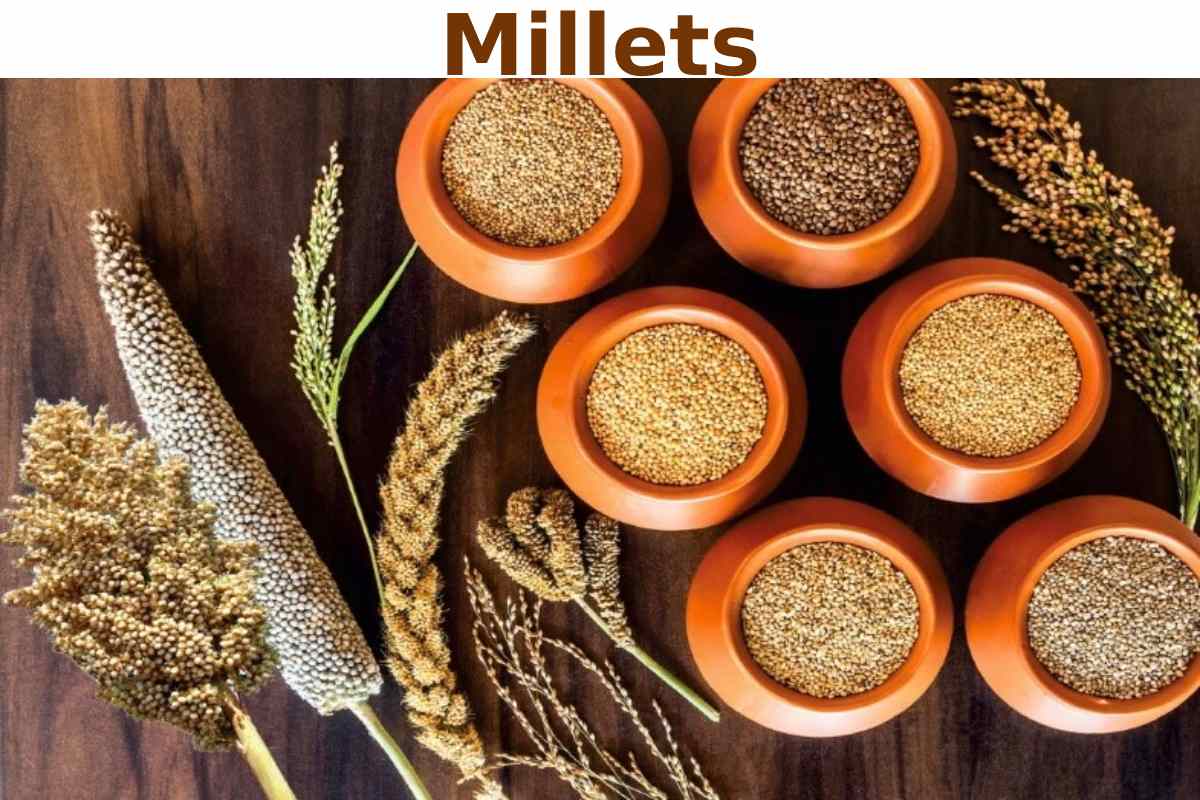Millets is a cereal grain that belongs to the Poaceae own family, commonly called the grass circle of relatives. It’s widely eaten up in developing countries at some stage in Africa and Asia. Millet has won popularity in the West because it’s gluten-loose and boasts high protein, fiber, and antioxidant contents.
Table of Contents
Types of Millets
Pearl Millet or Bajra
Grown and fed notably in the African and Indian subcontinent from historic instances, pearl millet is wealthy in phosphorus, enabling cells to save power and plenty of different vital minerals. Often cooked in wintry weather, pearl brings a warm temperature to the frame and will increase electricity levels.
Traditional pearl millet recipes include kanban koozh, antique-time oatmeal from Tamil Nadu, and bhakri roti, eaten across India, from Maharashtra to Gujarat Karnataka.
Finger Millet or Ragi
It has the highest calcium gratified of any millet and grows without difficulty in arid areas. An anti-diabetic grain, its excellent fiber content also checks constipation, fat, and colonic cancer.
Traditional Finger Millet Recipes: Ragi orbs, or ragi mudde as they regionally regard, are a staple in Karnataka. Ragi malt or porridge being relatively nutritious and also clean-to-digest is an everyday weaning meal.
Note: Equally, bajra and ragi contain goitrogens that might aggravate the thyroid gland if taken too, usually in an afternoon.
Foxtail Millet or Navane
Possibly the oldest cultivated millet, it’s far notion to have originated in Northern China, wherein it’s miles reasonably regarded as a healing meal for postpartum and digestive fitness. Foxtail millet has an ironic mineral content and also is especially excessive in iron. A famous fasting meal in a few elements of India, miles known as Xiaomi, or tiny rice in Chinese.
Old Foxtail Millet Recipes: Idli, upma, payasam, biryani. It commonly make into porridge inside the northern parts of China.
Little Millet, Samai or Kutki

The smallest of the millet’s family, little millet, is every other reliable trap crop grown across India. It is very smooth to cook and is often actually used as rice and, in reality, maybe utilized in any recipe that demands rice. Higher iron content material gives it an edge over rice, especially for anemia.
Old Little Millet Recipes: Substitute rice in Pulau, payasam, khichadi, biryani; in truth, any rice recipe with little millet.
Sorghum or Jowar/Jola
Sorghum is extensively cultivated and fed on throughout many states in India, and Rotis made with johar are a great deal simpler to abstract. It is rich in potassium, phosphorus, calcium, iron, besides zinc.
Traditional Jowar Recipes: Used substantially across India to make Rotis and also porridge.
Barnyard Millet
Barnyard millet grows faster than you may say samvat ke chawal. One of the highest-fiber and iron content materials amongst fellow millets, low carb content, and a superb supply of B-complicated nutrients.
Traditional Barnyard Millet Recipes: Used to make distinctive forms of porridges. Somewhat sticky when cooked, samvat ke chawal is famous for the duration of Navratri when they use to make upma, khichdi, and pulav in the course of fasts.
Proso Millet or Baragu/Varagu
Though its protein content is much like that of wheat, it’s far taken into consideration a much better excellent protein source because it is not only wealthy in essential amino acids (leucine, isoleucine, and methionine), it’s also gluten-loose. About as antique as foxtail, proso is one of the extra tasty and temperate millet types.
Traditional Proso Millet Recipes: Upma, Pulau/biriyani, then gruel.
Kodo Millet or Araka
As with different varieties, Kodo became domesticated several years in the past. It has a high quantity of lecithin and is superb for strengthening the worrying machine. It is also wealthy in B vitamins, particularly niacin, B6, folic acid, and minerals, including calcium, iron, potassium, magnesium, and zinc.
Traditional Kodo Millet Recipes: Upma, idli, Pulau/biriyani, and porridge.
How to Use Millets in Your Everyday Diet?
There’s no basis to give up the meals you like. Just update one or of the substances with millets, and you’ll grow to be ingesting a delectable, balanced weight loss program that’s nutritious too. Here are some of the matters you may do:
- Use Millets in Preference to Rice: Replace rice with millet at just one meal and experience the distinction. Try a 1/2 and half of millet and rice blend initially
- Make Dosa Batter at Home? Use Millets in Place of Rice. Or strive it with a 1/2 and a half millet and rice blend
- Healthier Pulau: Use masses of veggies and millet in place of rice
- Sweet Ideas: Make millet payasam with palm sweetie or jaggery
- Breakfast: Try millet as opposed to oats. Cook and pinnacle with raisins, brown sugar, or nuts
- Make a Burger: Combine with heated beans or peas to make vegetarian “burgers. Use your typical seasoning, form into patties, and burn before pan-fry.
- Soups and Stews: Rinse millet and throw in a handful into your crockpot. Keep for approx—30 minutes for it to take in the liquid and emerge as soft. Or cook dinner separately and upload.
Also Read: Tuna Fish – Description, Interesting Facts, Habitat, and More

